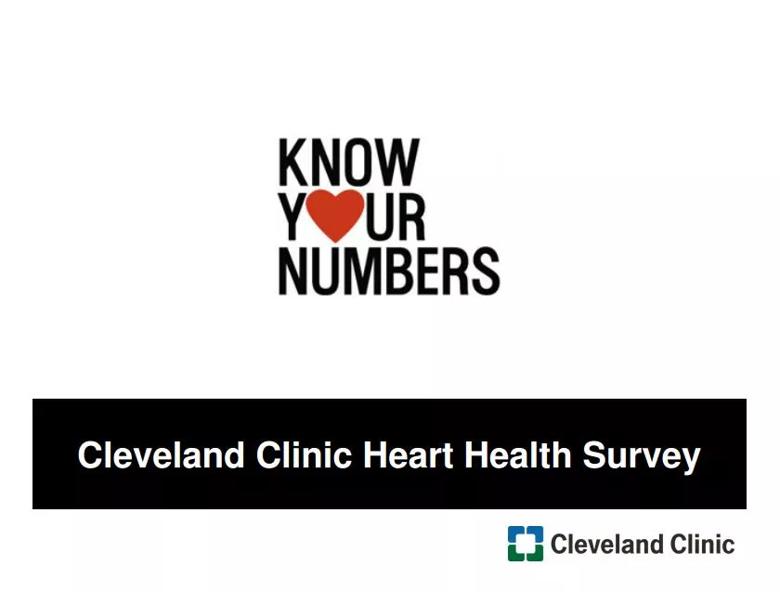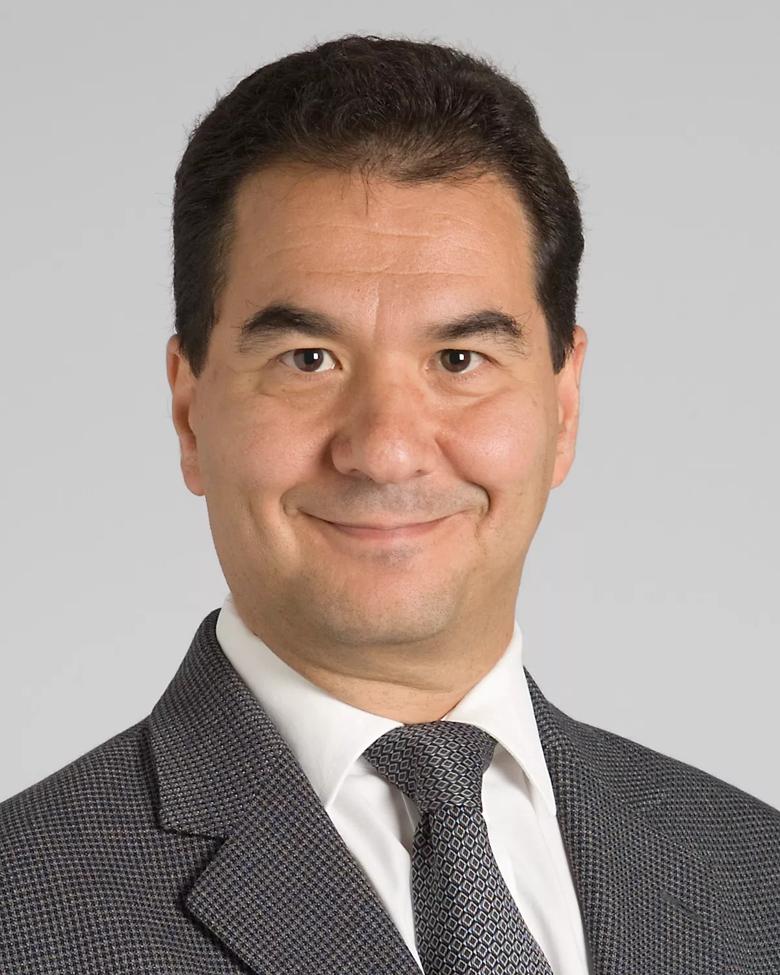Cleveland Clinic survey reveals Americans worry about dying from heart disease, but more know their bank balance than their blood pressure
Cleveland Clinic News Service | 216.444.0141
We’re available to shoot custom interviews & b-roll for media outlets upon request.
CCNS health and medical content is consumer-friendly, professional broadcast quality (available in HD), and available to media outlets each day.
images: 0
video: 0
audio: 0
text: 0

A Cleveland Clinic survey shows that while 68 percent of Americans are worried about dying from heart disease, many don’t know the basic numbers important for heart health.
The survey found most people know the numbers that are key to their financial wellbeing, but they’re not as savvy when it comes to their health. For example, nearly half (46 percent) of those surveyed knew their bank account balance, while just 18 percent could state their body mass index (BMI) and only 38 percent knew their blood pressure.
(Note: Members of the media who wish to download broadcast-quality assets may to do so here.)
Heart disease is the No. 1 cause of death in the United States and around the world. While some risk factors for heart disease are not modifiable, others such as blood pressure, cholesterol, BMI, waist circumference, glucose and weight are alterable. While many people did know the risk factors, less knew the healthy range for them. Only four in ten Americans knew a healthy blood pressure reading was less than 120/80. Also, while half (52 percent) are aware BMI is an important factor, only a quarter (23 percent) know that a person is considered overweight with a BMI of 25 or more.
“Studies have suggested the majority of coronary artery disease events can be prevented by addressing treatable risk factors,” said Steve Nissen, M.D., chairman of Cardiovascular Medicine at Cleveland Clinic. “That means, a little knowledge regarding your ‘numbers’ could go a long way to helping keep your heart healthy and avoiding future problems.”

The survey was conducted as part of Cleveland Clinic’s “Love your Heart” consumer education campaign in celebration of American Heart Month. Cleveland Clinic has been ranked the No. 1 hospital in the country for cardiology and cardiac surgery for 22 years in a row by US News & World Report.
Additional survey findings include:
“Heart disease causes 1 in every 4 deaths in the United States, so it’s troubling that so few Americans know the basics about their own heart health,” Dr. Nissen said. “Americans could take better control of their health by simply educating themselves about what factors are most important to their health.”
Cleveland Clinic’s survey of the general population gathered insights into Americans’ perceptions of heart disease and exercise. This was a telephone survey conducted among a national probability dual-sample consisting of 1,002 adults, 485 men and 517 women 18 years of age and older, living in the continental United States. We have weighted the numbers to be nationally representative. Interviewing for this telephone survey (land line and cellphone combination used) was conducted by Braun Research and completed September 23-29, 2016. The margin of error at the 95 percent confidence level is +/- 3.1 percent.

Do you know your numbers? Join the conversation on social media using #LoveYourHeart. For more information on keeping your heart healthy, visit our Health Essentials blog.
Media assets are also available in Spanish/en Español.
Members of the media may request interviews with our heart experts.

Leslie Cho, M.D., Cardiovascular Medicine

Steven Nissen, M.D., M.A.C.C. , Chair, Cardiovascular Medicine

Leonardo Rodriguez, M.D., Cardiologist
Cleveland Clinic is a nonprofit multispecialty academic medical center that integrates clinical and hospital care with research and education. Located in Cleveland, Ohio, it was founded in 1921 by four renowned physicians with a vision of providing outstanding patient care based upon the principles of cooperation, compassion and innovation. Cleveland Clinic has pioneered many medical breakthroughs, including coronary artery bypass surgery and the first face transplant in the United States. U.S.News & World Report consistently names Cleveland Clinic as one of the nation’s best hospitals in its annual “America’s Best Hospitals” survey. Among Cleveland Clinic’s 49,000 employees are more than 3,400 full-time salaried physicians and researchers and 14,000 nurses, representing 120 medical specialties and subspecialties. The Cleveland Clinic health system includes a 165-acre main campus near downtown Cleveland, nine community hospitals, more than 150 northern Ohio outpatient locations – including 18 full-service family health centers and three health and wellness centers – and locations in Weston, Fla.; Las Vegas, Nev.; Toronto, Canada; Abu Dhabi, UAE; and London, England. In 2015, there were 6.6 million outpatient visits, 164,700 hospital admissions and 208,807 surgical cases throughout the Cleveland Clinic health system. Patients came for treatment from every state and 180 countries. Visit us at www.clevelandclinic.org. Follow us at www.twitter.com/ClevelandClinic.